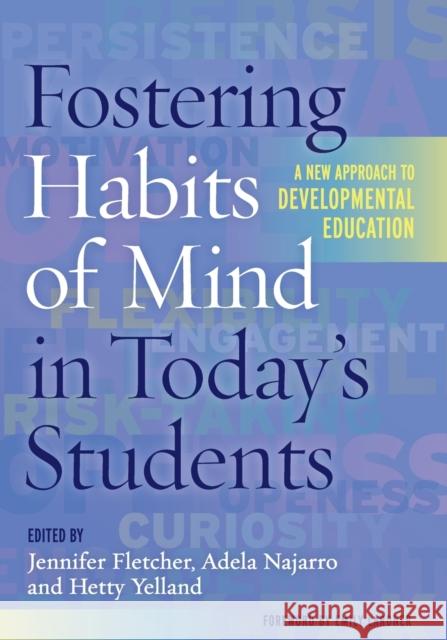Fostering Habits of Mind in Today's Students: A New Approach to Developmental Education » książka
Fostering Habits of Mind in Today's Students: A New Approach to Developmental Education
ISBN-13: 9781620361801 / Angielski / Miękka / 2015 / 320 str.
Fostering Habits of Mind in Today's Students: A New Approach to Developmental Education
ISBN-13: 9781620361801 / Angielski / Miękka / 2015 / 320 str.
(netto: 148,91 VAT: 5%)
Najniższa cena z 30 dni: 151,07
ok. 22 dni roboczych.
Darmowa dostawa!
Co-published in association with
Co-published with
Students need more than just academic skills for success in college and career, and the lack of an explicit instructional focus on the "soft skills" critical to postsecondary success poses a challenge for many students who enter college, especially the underprepared.
Based upon a multi-campus, cross-disciplinary collaboration, this book presents the resulting set of habits-of-mind-based strategies that demonstrably help not only low-income, ESL, and first-generation college students overcome obstacles on the path to degree completion; these strategies equally benefit all students. They promote life-long, integrative learning and foster intellectual qualities such as curiosity, openness, flexibility, engagement, and persistence that are the key to developing internalized and transferrable competencies that are seldom given direct attention in college classrooms.
This contributed volume, written with full-time and adjunct faculty in mind, provides the rationale for this pedagogical approach and presents the sequential instructional cycle that begins by identifying students' assets and progressively focusing on specific habits to develop their capacity to transfer their learning to new tasks and situations.
Faculty from both two-year and four-year colleges provide examples of how they implement these practices in English, math, and General Education courses, and demonstrate the applicability of these practices across course types and disciplines.
Chapters address key factors of college success, including:
* The link between habits of mind and student retention and achievement
* Using an assets-based approach to teaching and learning
* Supporting and engaging students
* Creating inclusive learning communities
* Building confidence and self-efficacy
* Promoting transfer of learning
* Teacher networks and cross-disciplinary collaboration
By foregrounding habits of mind as an instructional lens, this book makes a unique contribution to teaching in developmental and general education settings.











